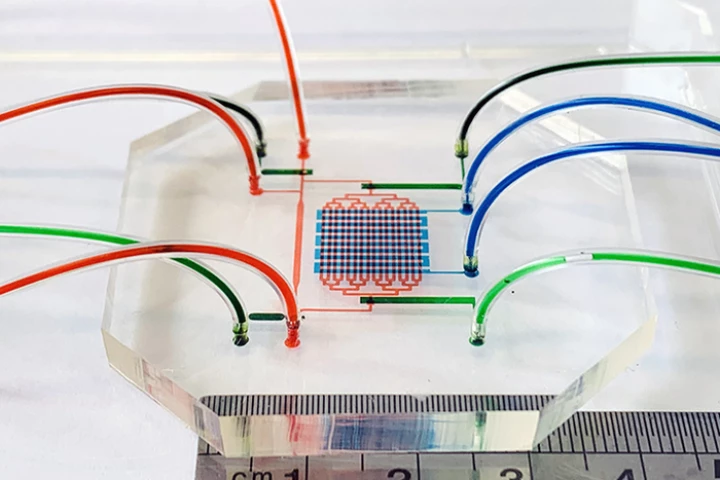Bloodstream
-
It's no surprise that regular exercise can improve a variety of health metrics. But a new study shows that when you work out is as important as exercise itself, especially when it comes to controlling your blood sugar levels.
-
A new sensor could soon allow hospital patients' blood oxygen levels to be checked via their breath. The technology is claimed to be more reliable and less painful than existing traditional methods.
-
While some blood clots can be removed via a tool that's inserted into the affected vein or artery, others are harder to reach. Those other clots could one day be treated using "millirobots" that auger their way through the patient's blood vessels.
-
Kombucha, a drink made by fermenting sweetened tea, has shown some promise as a health-promoting beverage. Now, its powers may extend to helping those suffering from type 2 diabetes keep their blood glucose levels in check, according to a new study.
-
In new research, the presence of a blood-based sugar molecule helped predict the onset of Alzheimer's up to a decade before symptoms appeared. The protocol could join others in spotting the condition early and slowing its progression.
-
Detecting circulating tumor cells among healthy blood cells is notoriously hard. Now an easy-to-use device can ID even a small number of cancer cells, potentially providing a huge breakthrough in non-invasive early detection, monitoring and treatment.
-
Researchers at the University of New South Wales have demonstrated how a microfluidic device that mimics the embryonic heart can produce blood stem cell precursors, which could let blood stem cells be manufactured on demand.
-
Everyone responds to general anesthetics differently, which can make administering the correct dose tricky. A new device is designed to help, by continuously monitoring anesthetic levels in patients' bloodstreams during surgical procedures.
-
Continuous blood monitoring would be a transformative advance for doctors and a new study brings that reality closer. New research describes a device that can detect real-time changes in blood levels of any molecule a doctor would need to monitor.
-
Treatments for blood clots in the body naturally come with a risk of excessive bleeding from an injury. But a new synthetic blood thinner bypasses this side effect, fighting thrombosis while still allowing blood to clot normally in a wound.
-
Triglycerides are a form of fat that circulates through the bloodstream, and high levels can lead to obesity and related illnesses. Now, researchers have found a way to efficiently produce a protein that clears these fats from the bloodstream.
-
Researchers have discovered a new component in blood that has never been detected there before. Mitochondria are normally found inside cells, but the team has now discovered them floating around on their own in the bloodstream.
Load More











